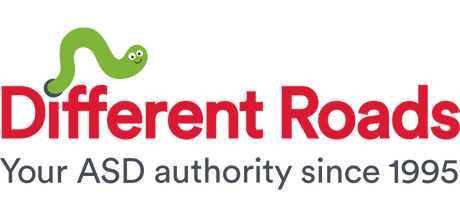On more than one occasion, I’ve been in the situation that a student will only demonstrate a skill in my presence. And I’ve heard from other colleagues that they have had similar experiences. This is highly problematic. When it happens with one of my students, there is only one person I can blame: myself. A skill that a student can only demonstrate in my presence is a pretty useless skill and does nothing to promote independence.
So what do you do when you find yourself in this situation? You reteach, with a focus on generalization. This means that, from the very beginning, you are teaching with a wide variety of materials, varying your instructions, asking other adults to help teach the skill, and demonstrating its use in a variety of environments. Preparing activities takes more time on the front-end for the teacher, but saves a ton of time later because your student is more likely to actually master the skill. (Generalization, after all, does show true mastery.)
Hopefully, you don’t have to do this, though. Hopefully, you’ve focused on generalization from the first time you taught the skill. You may see generalization built into materials you already use.
Another commonly cited issue teachers of children with autism encounter is failure to maintain a skill. In my mind, generalization and maintenance go hand-in-hand, in that they require you to plan ahead and consider how, when, and where you will practice acquired skills. Here are a few tips that may help you with maintenance of skills:
- Create notecards of all mastered skills. During the course of a session, go through the notecards and set aside any missed questions or activities. You might need to do booster sessions on these. (This can also be an opportunity for extending generalization by presenting the questions with different materials, phrases, environments, or people.)
- Set an alert on your phone to remind you to do a maintenance test two weeks, four weeks, and eight weeks after the student has mastered the skill.
- Create a space on your data sheets for maintenance tasks to help you remember not only to build maintenance into your programs, but also to take data on maintenance.
Considering generalization and maintenance from the outset of any teaching procedure is incredibly important. Often, when working with students with special needs, we are working with students who are already one or more grade levels behind their typically developing peers. Failing to teach generalization and maintenance, then having to reteach, is a waste of your students’ time.
Sam Blanco, PhD, LBA, BCBA is an ABA provider for students ages 3-15 in NYC. Working in education for sixteen years with students with Autism Spectrum Disorders and other developmental delays, Sam utilizes strategies for achieving a multitude of academic, behavior, and social goals. She is also an assistant professor in the ABA program at The Sage Colleges, and she is the Senior Clinical Strategist at Chorus Software Solutions.
